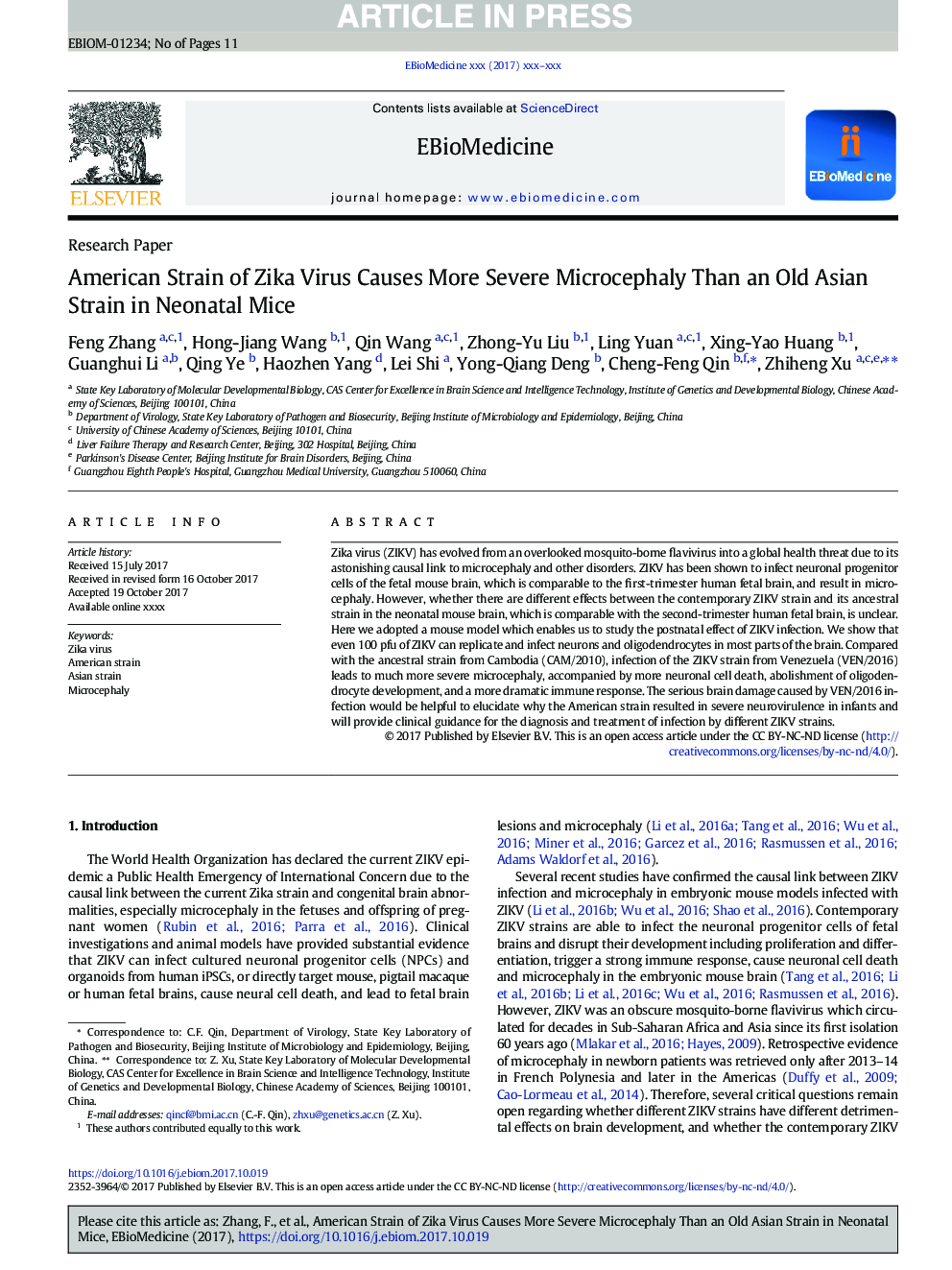| کد مقاله | کد نشریه | سال انتشار | مقاله انگلیسی | نسخه تمام متن |
|---|---|---|---|---|
| 8437840 | 1546874 | 2017 | 11 صفحه PDF | دانلود رایگان |
عنوان انگلیسی مقاله ISI
American Strain of Zika Virus Causes More Severe Microcephaly Than an Old Asian Strain in Neonatal Mice
ترجمه فارسی عنوان
ویروس آمریکای شمالی از ویروس زیکا موش بزرگتر از یک آسیای قدیمی آسیایی در موشهای نوزادان
دانلود مقاله + سفارش ترجمه
دانلود مقاله ISI انگلیسی
رایگان برای ایرانیان
کلمات کلیدی
ویروس زیکا، سویه آمریکایی، آسیا آسیا، میکروسفالی،
موضوعات مرتبط
علوم زیستی و بیوفناوری
بیوشیمی، ژنتیک و زیست شناسی مولکولی
تحقیقات سرطان
چکیده انگلیسی
Zika virus (ZIKV) has evolved from an overlooked mosquito-borne flavivirus into a global health threat due to its astonishing causal link to microcephaly and other disorders. ZIKV has been shown to infect neuronal progenitor cells of the fetal mouse brain, which is comparable to the first-trimester human fetal brain, and result in microcephaly. However, whether there are different effects between the contemporary ZIKV strain and its ancestral strain in the neonatal mouse brain, which is comparable with the second-trimester human fetal brain, is unclear. Here we adopted a mouse model which enables us to study the postnatal effect of ZIKV infection. We show that even 100 pfu of ZIKV can replicate and infect neurons and oligodendrocytes in most parts of the brain. Compared with the ancestral strain from Cambodia (CAM/2010), infection of the ZIKV strain from Venezuela (VEN/2016) leads to much more severe microcephaly, accompanied by more neuronal cell death, abolishment of oligodendrocyte development, and a more dramatic immune response. The serious brain damage caused by VEN/2016 infection would be helpful to elucidate why the American strain resulted in severe neurovirulence in infants and will provide clinical guidance for the diagnosis and treatment of infection by different ZIKV strains.
ناشر
Database: Elsevier - ScienceDirect (ساینس دایرکت)
Journal: EBioMedicine - Volume 25, November 2017, Pages 95-105
Journal: EBioMedicine - Volume 25, November 2017, Pages 95-105
نویسندگان
Feng Zhang, Hong-Jiang Wang, Qin Wang, Zhong-Yu Liu, Ling Yuan, Xing-Yao Huang, Guanghui Li, Qing Ye, Haozhen Yang, Lei Shi, Yong-Qiang Deng, Cheng-Feng Qin, Zhiheng Xu,
